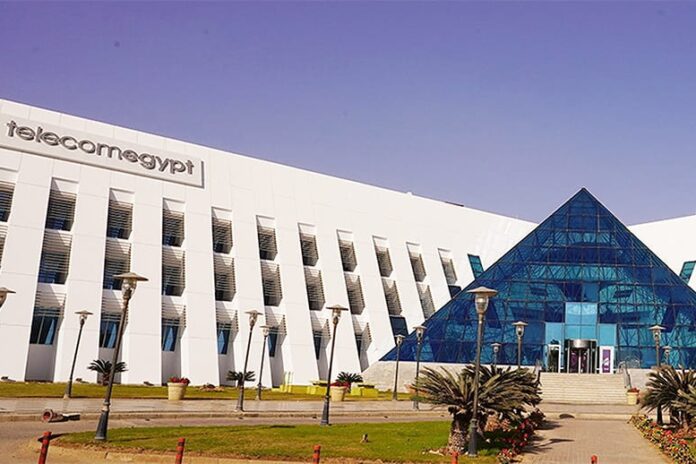Egypt widened its lead while Morocco and Algeria saw a significant improvement in speeds
Egypt has widened its lead in North Africa achieving, a median download speed of 56.61Mbps and an upload speed of 25.07Mbps, according to Ookla’s latest Speedtest results. Meanwhile, Algeria saw a significant improvement in median fixed broadband download speed, with a 4.5-fold increase to 11.34Mbps between Q3 2020 and Q3 2023. Morocco’s upload speed has also significantly improved, rising more than 22-fold to 19.09Mbps during that period.
Despite the increases, North Africa lags the Gulf region in fibre coverage, adoption, and internet speed. For example, in Q3 2023, the UAE ranked fourth with a median download speed of 231.98Mbps. Kuwait ranked twenty-second, and Qatar twenty-third. Other Gulf countries trailed the UAE but were ahead of all markets in North Africa.
North African markets are dominated by incumbent operators and DSL technologies still predominate. In addition, most North African countries also have a larger land mass, more varied geology, and a lower level of urbanisation, making fibre deployment more complex and costly. Nevertheless, Egypt has still upgraded its ADSL to VDSL and focused FTTH/B deployments in greenfield areas. Algeria concentrated on replacing copper lines with FTTH/B while Morocco and Tunisia deployed VDSL while also progressing with FTTH/B rollout.
As of June 2023, Algeria has the highest number of FTTH/B connections in North Africa, totalling 800,000. Morocco follows closely with 730,000 connections and boasts the largest fibre share of the wired broadband market. Egypt has the highest number of VDSL connections in the region, and an estimated few hundred thousand active FTTH/B customers as of September 2023. Tunisia is in fourth position with 55,000 FTTH/B connections and 176,000 VDSL connections.
Algeria dominated by Algerie Telecom (AT)
State-owned AT has seen a surge in the number of fibre subscribers by nearly 14-fold between 2020 and November 2023, reaching the 1 million milestone, making Algeria one of the largest FTTH/B markets in Africa. However, it has yet to boost the speed that most households experience. While the download speed of the fastest 10% samples increased from 8.01Mbps in Q3 2020 to 45.71Mbps in Q3 2023, the median download speed only reached 11.34Mbps during that period.
According to the regulator ARPCE, more than 85% of connections had a download speed of 10Mbps in March 2023. The government proposed to exempt fixed broadband services from VAT in 2024, which should help make it more affordable for customers to upgrade to higher-speed packages. The number of households passed by fibre is expected to increase from 3.5 million in 2022 to 6 million by 2024 (out of an estimated 7.4 million households).
Egypt backs FTTC
State-owned Telecom Egypt (TE) dominates the sector, controlling over 80.1% of the market with more than 8.7 million fixed broadband subscribers. As of September 2023, TE connected 95% of households to the next-generation FTTC network (up from 85% in 2019). Raising the minimum broadband speed to 30Mbps led to a substantial increase in the country’s median download speed to 56.61Mbps in Q3 2023, up from 25.07Mbps in Q3 2020. Given that TE currently offers speeds of up to 150Mbps, Ookla said there’s ample opportunity to enhance download speeds further.
Morocco’s competitive fibre market
Maroc Telecom (MT) dominates the copper-based fixed broadband market in Morocco, which has spurred other ISPs, inwi and Orange, to develop their own fibre infrastructure and lease capacity from local utility and transport companies. The Moroccan government has ambitious plans to connect more households to high-speed broadband services under the “Maroc Digital 2030” program. The government aims to connect 5 million households with fibre by 2026, potentially making Morocco one of the largest FTTH/B markets in Africa.
Tunisia constrained
State-owned Tunisie Telecom (TT), operating in retail through subsidiary Topnet, dominates the fixed broadband market. TT maintains a strong position within this sector, controlling 72.9% of all fibre connections in Tunisia by June 2023. This figure includes direct customers (39.1%) and those provided through Topnet (33.8%).
Regulatory pressure from the telecom authority INT (Instance Nationale des Telecommunications) has urged TT to reduce its network access charges and expedite line activation to help other ISPs. Despite these efforts, various challenges persist, prompting operators such as Ooredoo and Orange to supplement their wired offerings with mobile broadband services based on 3G and 4G, in addition to TD-LTE-based FWA.
In August 2023, to spur competition the INT initiated a consultation to set the conditions required to share facilities to avoid infrastructure duplication and ensure efficient fibre investments. The proposal is to have all ISPs and infrastructure operators provide shared access to their telecom facilities after 12 months of commercial operations.


